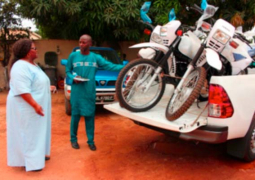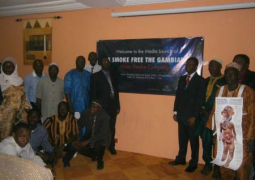We recall that when the ministers of Health and Transport convened a stakeholders meeting in Banjul recently, it was to discuss strategies to prevent Ebola from entering the country.
The Gambian health minister was quoted as saying at the meeting: “The whole world is concerned about the Ebola…This is why we are looking at the level of preparedness of the airlines that bring in passengers from the affected zones.”
We learned the minister then announced that “the President would soon set up a ministerial task force” chaired by the President himself, as proof of political commitment to respond effectively to the Ebola menace.
Such a move will be consistent with the expectations of ECOWAS and UN WHO in terms of member states’ preparedness mechanisms.
We have heard calls for the relevant national agencies to be on high alert to guard our borders, and keep the disease out of our territory.
This is a call for greater surveillance, not just at the various entry points, but also within the country.
Our vital tourism industry’s winter seasons usually begins in October, just weeks away, and we must do everything to make sure the tourists come.
We must be very vigilant including taking all necessary preventive measures, such as the air passenger ban.
However, there is also a need to prepare emergency response teams on how to handle infected persons humanely, and without sparking public fear, alarm and panic.
In this regard, how we communicate, the media we use, what we communicate and who is assigned to do so to keep the public informed is crucial.
We are aware that some of these measures are already in place or being carried out effectively, and we wish to applaud the good work of the various arms of government involved for their surveillance and response preparedness.
“Given the scale of issues like global warming and epidemic disease, we shouldn’t underestimate the importance of a can-do attitude to science rather than a can’t-afford-it attitude”.
Martin Rees




